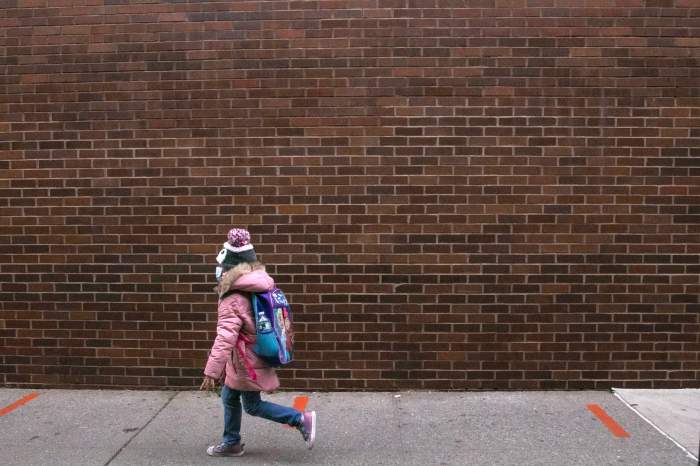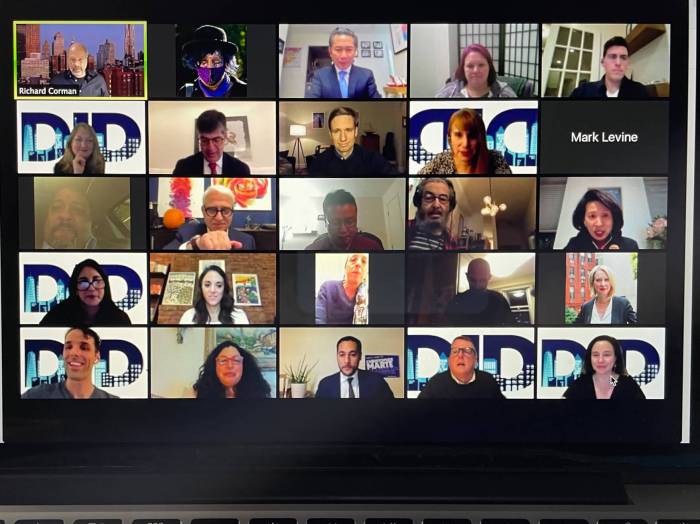BY CARA ZELAS
History can be our biggest teacher, if we reflect upon previous pandemics, we know that they do come to an end. With vaccines being trialed and implemented at a rapid pace, there is light on the horizon. Nonetheless, the past year has been rough and challenging, especially for families. With children’s education being disrupted during the pandemic and with ongoing school closures, hybrid and remote learning, Zoom fatigue and even the right access to technology, a lot of pressure has been put on the shoulders of parents and caregivers. It is difficult, at times, to maintain positive emotions within ourselves, let alone for our children. However, as we move into 2021 and remote school continues for some children, it is important to help children build positive routines, nurture emotional self-regulation and build resilience.
Right now, we are all going through collective trauma. We may have different problems arise and challenges to face but many humans, on this earth, have been affected and lives impacted due to the coronavirus.
Despite this trauma, focusing on the positive helps readjust our mindset. There is a theory called, Post-Traumatic Growth, which explains transformation following trauma. It was developed by psychologists Richard Tedeschi and Lawrence Calhoun and theorizes that when people endure struggles and adversity, that positive growth emerges. “People develop new understandings of themselves, the world they live in, how to relate to other people, the kind of future they might have and a better understanding of how to live life,” says Tedeschi.
Currently, we are in the midst of the struggles and it’s hard and uncomfortable. In spite of this, remaining focused that positive growth will occur on a micro and macro level once things calm down and return to a new normal. Think of this time as a transformation. How can we do life better? What is important? What is not?
Nevertheless, right now we are in the thick of it. And parents and caregivers are TIRED! Working from home, child-caring and educating seems unsustainable.
Here are some strategies and tips on supporting you and your children’s emotional well-being that may help your family get through This New Year with firm footing.
Psst…Looking for other helpful tips? Check out The Emotion Scientist: How to Cope (and Help your Kids Cope) During COVID-19
Keep Talking
Clear and honest communication is important to maintain with your children. Listen, show understanding and acknowledge that this is an uncertain and difficult time. Successful communication can deepen relationships as it brings awareness to each other’s needs.
Give Feelings a Name
Noticing and naming our emotions can help diffuse a situation and assist children in processing their feelings. Naming our emotions helps us to step back and think about the choices you have in that moment. Give your child prompts, for example, “I can see you are mad, sad, angry, etc…” Acknowledge their feelings by giving it a name.
Model a Positive Attitude
We are in a time of crisis, it can feel at times like we are triaging what needs the most attention. We have been living in a world that is filled with fear in the air and anxiety hanging over our heads. But try and think of one positive thing, that you can focus upon. And in a moment of despair or sadness, bring your attention back to that one positive thing. When your child sees you being positive, they copy or model what they see.
Sustain Routine and Rituals
Parents — create a rhythm to your day, a routine that has flexibility but follows a similar path. Be consistent with when you eat, work, play and go to sleep. Pepper your day with rituals: create a family dream board that you all add to; at bedtime, talk about one positive experience of the day; do a short breathing exercise together; make up a special hug that you give each other; or think up a little mantra or saying that you repeat, for example, “I love you to the moon and back.”
Practice Gratitude and Giving
Think of gratitude as one of your parenting tools to help build a positive attitude. Try and think of one thing you are grateful for. Make this part of your daily routine, and say it out loud and encourage the kids to do the same. There is a lot of pain in the world right now, it is at an epic magnitude of damage and despair. Do something, no matter how small, for someone who is experiencing trouble. Keep it simple, recycle a cardboard box and fill it with gently used books, items of clothes, toys and unused toiletries — and donate the box to someone in your community.
Maintain Social Interaction
Stay connected with others in a small group, where you can comfortably social distance and wear a mask but be together. Have your child kick it old school and have them write a letter or card to a loved one via snail mail. Make a video or record voice messages to send to family and friends.
Play
This time is stressful but remember to make time for play, games and laughter. Make something together and get creative. Put on your family’s favorite tunes to dance and sing. Be active, if you can get outside for a walk, in nature or around the block, anything to get your body moving and blood pumping will improve your mood. Involve your child in the cooking and give them an opportunity to make the dinner menu one evening.
Compassion and Kindness for Self
Moms ask for the time out that you need. Enjoy some mindful moments during the day to take some deep breaths. Take a long shower. Get outside, go for a walk to begin or end the day. Watch a funny movie. Get lost in a new podcast series. Taking care of the self is vital, otherwise taking care of others is not sustainable.
Seek Help
Don’t suffer in silence. Talk to a family member or a close friend you can open up to and trust. Or seek alternative help from your doctor, they will be able to direct you to a mental health provider to talk to. The pandemic has made telemedicine more accessible, you don’t have to leave your home and someone can help you in real-time.
This is not always easy. Take it day by day. Be in the moment and in the present instead of ruminating on the past or planning so intensively for the future.
Keep in mind — this pandemic won’t last forever. Try and find some positives from this period in time and keep in mind the consequence of having a deeper understanding and appreciation for social connection, friendship, family, and our own space. Take care. And keep positive.
This story first appeared on our sister publication newyorkfamily.com.




































